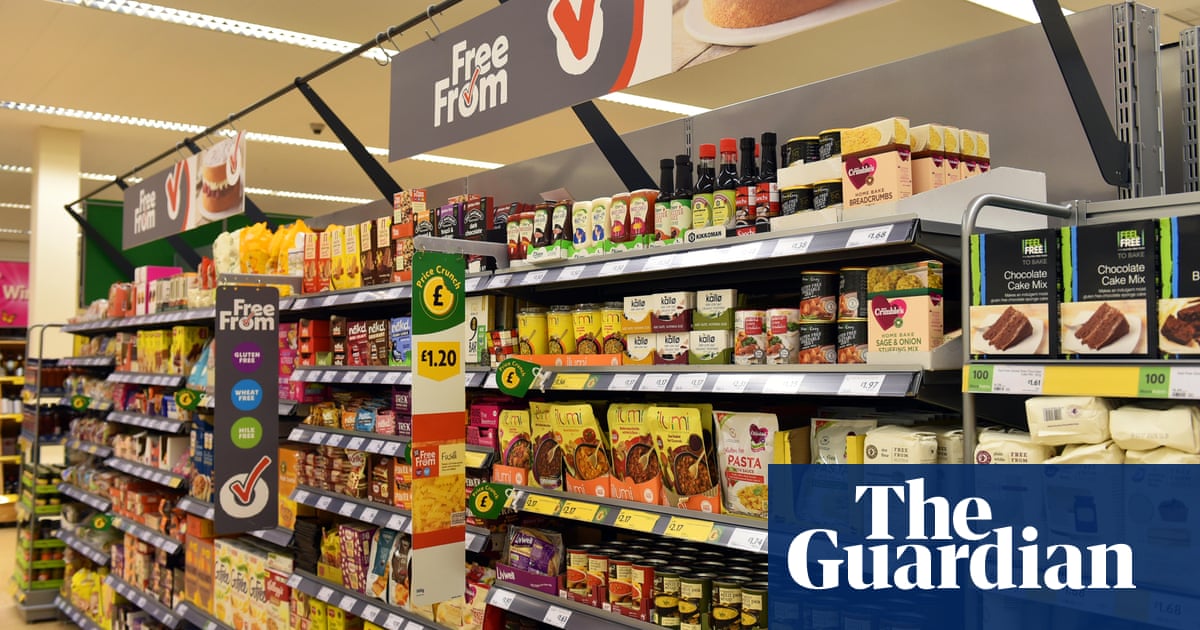
About 4,000 lorries, and thousands more small vans, are now waiting to cross the Channel after a two-day French ban on freight arriving from the UK, with food transport firms warning that potential disruption levels now range between “a shambles and a catastrophe” just as January and the end of Brexit transition looms .
Representatives of the Food and Drink Federation and the Road Haulage Association (RHA) told MPs on Tuesday that the hundreds of lorries queued on the M20 into the port of Dover, and at a temporary parking facility at Manston airport in Kent, were only a part of the problem. Many more vehicles, they said, were parked elsewhere in Kent, or waiting to depart from factories and warehouses.
Roger Gough, the leader of Kent council, told the BBC that nearly 3,000 vehicles were being held – 632 on the M20 and a further 2,220 at Manston.
If vehicles were unable to return to France, the hauliers warned, there would be a shortage of transport to pick up fresh goods from the continent and return to the UK in time to refill shelves after Christmas. Queues could reach 7,000 vehicles, they added.
The UK government was on Tuesday evening still trying to unlock the ban, which was imposed by Paris in an effort to contain the spread of a new variant of coronavirus, as talks about a post-Brexit trade deal go down to the wire.
Industry insiders said the government was preparing to set up a Covid testing facility at Manston in an attempt to unlock the blockade.
Retailers warned on Tuesday that vehicles would need to begin moving within 24 hours or there would be shortages of fresh produce including lettuces, tomatoes, citrus, soft fruit and cauliflowers in stores from 27 December.
The British Retail Consortium trade body said it had told the government there was “no alternative to reopening the Channel ports, given that it is a key supply route for fresh produce at this time of year”.
While some fresh food shelves could look bare in coming days, retailers urged shoppers not to panic buy. They said there would still be plenty of food as traditional Christmas fare such as potatoes, carrots, brussels sprouts and parnsips were largely grown in the UK and there were plenty of supplies of long-life goods such as tinned and packet foods.
However, food industry representatives said that if the French ban continued it would affect preparations for the end of the Brexit transition set for 31 December. The industry had planned to use the week between Christmas Day and New Year’s Day to build stocks of fresh food and other goods in case of any disruption caused by changes to the terms of trade with the EU.
Speaking at a special hearing of the business select committee, Duncan Buchanan, director of policy at the RHA, warned the government was being complacent about the growing problems and was making “big assumptions about readiness” for Brexit.
He said the government’s suggestion that only a small proportion of goods were being imported via France was “dismissing the scale of the problem”. The haulage industry says a large proportion of fresh food is brought in by lorries from Calais at this time of year.
“This problem is going to be significant,” Buchanan said. “Somewhere between a shambles and a catastrophe is coming in January, and everything I’ve seen in the last 24, 48 hours leads me to believe we are going to be in a bad position.
“The problem is we do not know what goods exactly will be in short supply and exactly what’s not going to happen properly and what factories are not going to be able to make what they make.”
Ian Wright, the chief executive of the FDF, said the disruption at Dover was a “tiny peek at what could happen in the first few days and weeks of the transition period ending and it would be compounded by tariffs and no deal.”
He added “this kind of chaos” would be “entirely possible” at a number of ports around the UK exporting and importing from the EU next year.
Concerns about imports of fresh food were matched by concerns about exports, particularly Scottish seafood destined for festive feasts in Spain.
Wright said companies’ insurance policies would not cover the lost stock and called on the government to compensate firms affected by the delays to deliveries, which could lead to millions of pounds worth of salmon, langoustine and shellfish spoiling.
The chief executive of Scotland Food & Drink, James Withers, said that even if a protocol for freight movements was agreed on Tuesday it would already be too late for most Christmas orders.
“For some of our shellfish exporters, the pre-Christmas sales have now been ruined. It looks like mission impossible to get products to the big markets in Spain which are held tomorrow. That is an irrecoverable loss of income and I fear about this being a fatal blow to some of the smaller businesses after the horrendous year they have already had,” Withers said.












